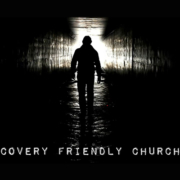Called worker mental health
Nearly 20% of adults in the U.S. were diagnosed with a mental illness in 2019, according to a recent study by Mental Health America. More than half of Americans reported that the pandemic had a negative impact on their mental health. Of these nearly 50 million people, over half went untreated. The study shows that many are uninsured and for those who have coverage, a large percentage are forced out of network for mental health care. This makes treatment harder to find and less affordable.
Depression and anxiety are often wrongly viewed as character flaws that can be cured through stronger faith. Many Christians consider the called workers to be on a higher level spiritually than themselves and not susceptible to these problems. We observe our spiritual leaders spreading God’s Word and caring for the spiritual needs of the adults and children in our churches and schools. As well intentioned, but uninformed Christians, we assume that people who exhibit this type of faith would be immune to mental illness. Numerous studies and real-life experiences have shown us that God’s dedicated servants are not exempt.
In order to better support our called workers, we need to change our own perception of mental illness and become educated on the causes, symptoms, and treatment of them. The Rev. Dr. Todd Peperkorn is an Lutheran Church-Missouri Synod pastor who wrote a book called “I Trust When Dark My Road: A Lutheran View of Depression” in which he shares his deep struggles with anxiety and depression. His struggle began when he was a talented, energetic young pastor, devoted to his family and flock. It is shocking to hear him describe the stages of his depression that eventually caused him to completely withdraw from his ministry, family, and friends. He describes his struggles with the shame of others finding out about his diagnosis and finally the decision to take a leave from his ministry. It is heartening to hear of his treatment and ongoing recovery.
For a called worker struggling with depression, it is crucial to have the support of family, friends, another pastor, and the congregation. If your church already has a Care Committee for Called Workers, consider discussing mental health issues as a part of the annual meeting. If your congregation does not have a CCCW, concern with mental health during these stressful times provides a strong argument to form one.
Once the decision has been made to support a called worker in need, the members of the CCCW may wonder where to start. Christian Family Solutions provides confidential Lutheran counseling care and services – at no cost to the called worker. Their mission is “Healing and helping people in need through the ministry of Jesus Christ.” Since they can only help those who seek treatment, we should make it a priority that every called worker needing such help receives it.
Kurt Holzhueter, chairman of WELS Care Committee for Called Workers
Christian Family Solutions provides mental health outpatient counseling, school-based counseling, day treatment, and intensive outpatient programs for individuals and families through its clinics in seven states, at partner schools, and through telehealth. Through its Member Assistance Program, Christian Family Solutions offers confidential counseling services for called workers in all 12 districts, WELS World Missions, and other WELS/ELS organizations, at no cost to the called worker. There is a limit to the number of sessions available and may require a referral from your organizational leader or district president. Please contact your organization for more information on how to participate in the Member Assistance Program. You can also visit the Christian Family Solutions website to find more helpful resources or to request an appointment online: ChristianFamilySolutions.org. Or call 800-438-1772 to speak with the Christian Family Solutions intake staff about your care options.
SUBSCRIBE TO HIS HANDS
Get Special Ministries news and updates right to your inbox.
SUPPORT SPECIAL MINISTRIES
Support the ministry work of WELS Special Ministries.








